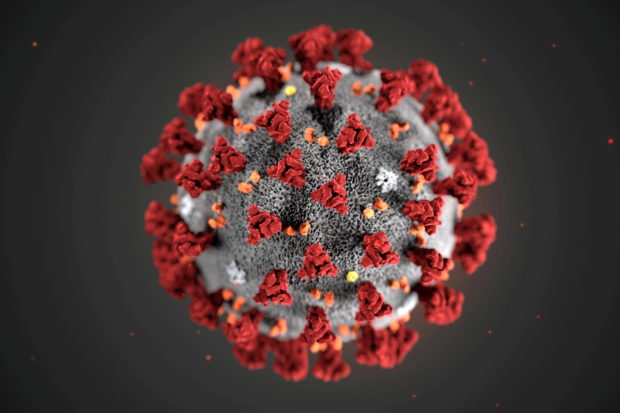
FILE PHOTO: The ultrastructural morphology exhibited by the 2019 Novel Coronavirus (2019-nCoV), which was identified as the cause of an outbreak of respiratory illness first detected in Wuhan, China, is seen in an illustration released by the Centers for Disease Control and Prevention (CDC) in Atlanta, Georgia, U.S. January 29, 2020. Alissa Eckert, MS; Dan Higgins, MAM/CDC/Handout via REUTERS.
The Beta variant of the coronavirus may be deadlier than the original version of the virus, according to researchers in South Africa who studied more than 1.5 million COVID-19 patients.
Although the Delta variant now accounts for the largest percentage of new COVID-19 cases in many countries, Beta is still circulating, with mutations that make it highly contagious and harder to prevent or treat than the original version.
The researchers found that people infected in the second wave of the pandemic, when Beta was dominant, were more likely to require hospitalization than those infected during the first wave, after accounting for patients’ risk factors and how over-burdened hospitals were.
Furthermore, hospitalized COVID-19 patients had a 31% higher risk of death in the second wave, according to the report published Friday in The Lancet Global Health.
The researchers did not know each patient’s infecting variant, so they had to use the first and second wave periods as proxies for the variant type, co-author Dr. Waasila Jassat of the National Institute for Communicable Diseases in Johannesburg told Reuters.
“We hope to repeat the analysis, comparing the third wave in South Africa to the first two waves, to similarly try to understand whether the Delta wave is associated with higher risk of death,” she said.
mRNA vaccines work well in ‘real world’ US study
The COVID-19 vaccines most often used in the United States are effective not just in clinical trials but in the “real world,” too, according to a nationwide study.
Using data on a sample of U.S. adults hospitalized between March and May 2021, researchers found that the mRNA vaccines from Pfizer/BioNTech and from Moderna “prevented about 87% of hospitalizations for COVID-19 that would have occurred if the vaccines had not been given,” said Dr. Wesley Self of Vanderbilt University Medical Center.
Effectiveness was similar for the two vaccines and was highest – at 97.3% – among adults ages 18 to 49, his team reported in a paper posted Thursday on medRxiv ahead of peer review.
Among immunosuppressed individuals, the vaccines prevented about 59% of COVID-19 hospitalizations that would have otherwise occurred. That is still a “substantial benefit,” Self said, but “because the protection is not as good for people with immunosuppression, we believe (they) still should take precautions to avoid contracting COVID-19 even if they have been vaccinated,” Self said.